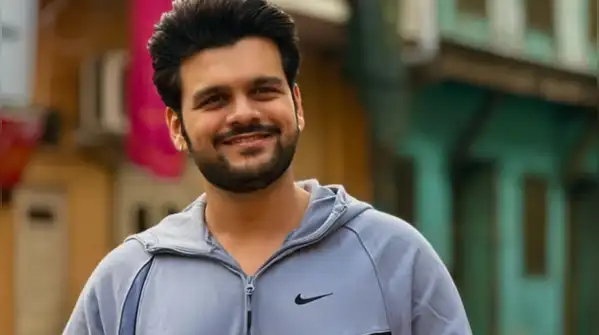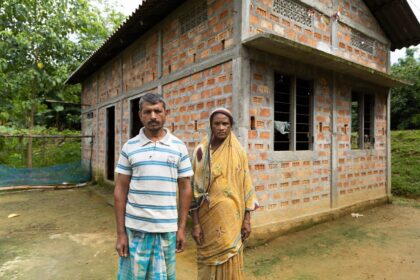Bhavya Gandhi Reacts to Munmun Dutta–Raj Anadkat Engagement Rumours & Shares Memorable Pushpa Impossible Anecdotes
The Boy Who Grew Up on Indian Television
For over a decade, Bhavya Gandhi was a permanent fixture in Indian households. As the mischievous and endearing Tapu in Taarak Mehta Ka Ooltah Chashmah (TMKOC), he became a name not just children adored, but adults respected. When he exited the show, many wondered what lay ahead. Would he get typecast? Would audiences accept him beyond Gokuldham Society?
What has unfolded since is not a tale of stardom in the traditional sense, but one of quiet reinvention, measured risk, and a deeply human approach to celebrity. From reflecting on engagement rumours about his former co-stars Munmun Dutta and Raj Anadkat, to sharing touching memories from his newer role in Pushpa Impossible, Bhavya has demonstrated that he is not just growing up—he’s evolving.
It was a headline that sparked frenzy across social media: “TMKOC’s Munmun Dutta and Raj Anadkat engaged?” Fans went into a tailspin, gossip portals speculated wildly, and memes flooded timelines. At the center of the speculation stood Bhavya Gandhi—not because he was involved, but because he was once an integral part of the trio that defined Gokuldham’s younger generation.
When Bhavya was asked about the rumour, his response was telling: measured, mature, and media-savvy. He neither confirmed nor denied, choosing instead to focus on respect for personal boundaries and the dignity of his co-stars. In a world where former colleagues often cash in on controversy, Bhavya did the opposite—he redirected attention to the human side of celebrity life.
In doing so, Bhavya not only defended his peers, but also reminded the public that young celebrities deserve compassion, not constant speculation.
If TMKOC was Bhavya’s childhood, then Pushpa Impossible marks his young adulthood. The show, which has won acclaim for its portrayal of an ordinary mother’s extraordinary journey, gave Bhavya the chance to play a layered, emotionally grounded role.
One anecdote he shared from his time on the show stands out. An elderly woman, recognizing him from the series, approached him not as Tapu, but as the character he now plays. She wept, touched by a particular episode that mirrored her own life. This moment stayed with Bhavya—not because it was fan adulation, but because it was a moment of connection.
For an actor long associated with a comedic, light-hearted character, Pushpa Impossible allowed Bhavya to tap into deeper emotions and earn a new kind of respect—the respect that comes not from laughter, but from understanding.
Bhavya Gandhi is candid about the pressures of growing up in front of the camera. The child who once played pranks on set is now navigating scripts, contracts, and creative control. Yet, what stands out most is his insistence on remaining rooted and intentional.
He doesn’t seek viral fame. He wants meaningful roles. He’s not obsessed with celebrity parties, but with learning from senior actors, reading scripts deeply, and even dabbling in regional cinema and digital narratives.
His choices so far reflect a careful strategy: gradual transformation rather than reinvention, depth over dazzle.
He has also spoken about the psychological weight of being recognized only as “Tapu” for years—a double-edged sword that came with fame but restricted his artistic range. And yet, he carries no bitterness.
When it comes to media speculation, Bhavya’s stance is rare—he neither lashes out nor fuels the fire. In an age where trending reels often shape public opinion, Bhavya continues to value direct connection over digital noise.
Even in reacting to the engagement rumours between Munmun Dutta and Raj Anadkat, he chose grace over gossip. His restraint sent a clear message: that dignity, maturity, and friendship come before TRP wars or clickbait culture.
In the world of Indian television, where recognition often morphs into typecasting, Bhavya Gandhi is actively redefining what it means to grow as an actor and as a person. His public persona remains grounded, respectful, and sharp—but behind the screen, there’s a deeper transformation at work.
This part of the article explores his acting philosophy, personal evolution, and mindset, as he navigates the complex corridors of the Indian entertainment industry with unusual clarity for someone still in his mid-twenties.Leaving Taarak Mehta Ka Ooltah Chashmah was not just a professional exit—it was a personal milestone. Bhavya has often said the decision wasn’t easy, nor was it made impulsively. It was based on an emotional shift—one rooted in the desire to grow, evolve, and explore.
That decision was bold—after all, how many child stars voluntarily walk away from nationwide fame? But Bhavya’s exit marked the start of his emergence as a self-aware artist, someone determined to avoid being a one-show wonder.
Unlike many TV actors who ride on melodrama and repetition, Bhavya Gandhi is learning to approach his roles as exercises in empathy. His process has matured significantly. He now:
- Observes real people before building a character.
- Reads beyond the script—studying sociology, psychology, and behavior.
- Prioritizes emotional nuance over dramatic flair.
His role in Pushpa Impossible required him to shed Tapu’s mischief and embrace restraint. The shift challenged him but also refined his acting muscle.
In today’s entertainment landscape, fame is no longer only about acting. It’s about virality, presence, and the ability to ‘trend.’ Bhavya, however, remains measured in his use of social media.
He posts infrequently, avoids controversy, and doesn’t chase algorithms. His Instagram isn’t an echo chamber of filters—it’s a curated space for authenticity.
But this isn’t born out of disinterest. It’s a conscious rebellion against superficiality. In an industry where image often overtakes substance, Bhavya prioritizes depth over digital dominance.
This approach has attracted quality over quantity in terms of collaborators, fan base, and creative opportunities.
Bhavya Gandhi comes from a Gujarati Jain family, deeply rooted in cultural values and discipline. He often credits his family, especially his late father, for keeping him emotionally anchored during his most confusing years.
Losing his father was one of the toughest moments in his personal life. Bhavya has spoken about it not with dramatic flourish, but with vulnerability.
This grounding reflects in Bhavya’s work ethic. On set, he’s known to be punctual, collaborative, and emotionally available—traits that earn him admiration from senior co-stars and directors alike.
His spiritual background, rooted in Jain values of non-violence and introspection, shapes how he views the world, relationships, and fame.
While Pushpa Impossible gave Bhavya a platform to explore new territory as an actor, it also offered something rare in the television world: creative space and emotional safety.
He credits the directors and writers for encouraging actor input, allowing him to suggest emotional beats, script transitions, and character detailing.
His scenes have moved beyond acting to emotional presence—a significant leap for someone whose previous work revolved around punchlines and pranks.
Bhavya Gandhi’s career is far from over—it is just beginning again. But what sets him apart is not just his experience or visibility, but his depth, emotional intelligence, and moral compass.
He is not trying to escape Tapu. He is trying to honor that chapter while turning the page.
In a world where child actors often fall into the traps of early fame, self-doubt, or overexposure, Bhavya is scripting a different story—one written with patience, precision, and purpose.
He reminds us that real artistry takes time, real identity takes honesty, and real success is not just being seen—but being remembered for the right reasons.
Also Read : 5 Brutal Truths Behind Trump-Munir Lunch: Why India Shouldn’t Be Shocked | Geopolitical Wake-Up Call








